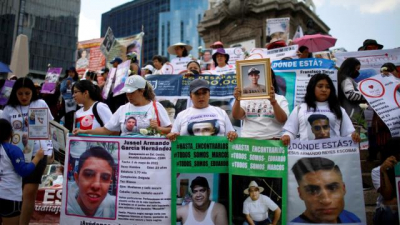Outraged": Ukraine's Bold Move - Cutting Off Essential Services for Military-Aged Men in Australia
Some Ukrainians residing overseas, including those in Australia, have been caught off guard by their government's recent efforts to strengthen the nation's military capabilities. Ukraine has implemented restrictions on consular services for men within the military-age bracket as part of a renewed push to enhance its defense forces—a decision that has stirred both anger and concern among the Ukrainian community in Australia. The directive, enacted on April 23rd, prohibits male citizens aged 18 to 60 residing abroad from seeking consular assistance, as confirmed by the Embassy of Ukraine in Australia and New Zealand. Consequently, they are unable to access vital services such as passport renewals. This measure follows closely on the heels of Ukrainian President Volodymyr Zelenskyy's endorsement of a new mobilization law, compelling all male citizens aged 18 to 60 to update their personal information with military authorities, facilitating the identification of potential conscripts. Additionally, the legislation outlines a tracking mechanism for Ukrainians residing abroad and mandates the presentation of military registration documents for those seeking consular services, among other provisions slated to take effect on May 18th. The Ukrainian government's objective is to reinforce its military ranks in the face of ongoing challenges. The consular limitations, characterized by the embassy as "a temporary measure necessitated by the need to address issues related to the military registration of mobilization-age citizens residing abroad," will remain in effect until May 18th. Subsequently, male Ukrainians aged 18 to 60 living abroad will only be eligible for consular assistance if they possess an updated military ID and have updated information at territorial acquisition centers (TCC). Those who legally departed the country and possess a valid military ID can update their information by contacting or submitting a request to the TCC in Ukraine. However, several aspects of these changes remain ambiguous, including whether Ukrainians residing abroad will have access to the medical examinations necessary to obtain a military ID or confirm health conditions warranting exemption from military service. Notably, Ukraine's government has emphasized that it will not forcibly repatriate military-age Ukrainian men from foreign nations despite these restrictions.
Concerns loom over the fate of individuals lacking a valid military ID, as they risk being denied consular services, including visa and passport renewals, compelling them to make a difficult choice: either return to Ukraine or remain abroad illegally. Among those affected is Aleks, whose name has been altered for security reasons. He and his mother, Nina, fled Ukraine in the wake of Russia's extensive invasion in February 2022, just three days after Aleks turned 16. Their departure coincided with Ukraine's implementation of martial law and the prohibition of males aged 18 to 60 from leaving the country to fortify national defense. Departing hastily, Nina and Aleks failed to register Aleks with the military authorities, a prerequisite for adult males in Ukraine. They sought refuge in Australia, a destination chosen by nearly 11,400 Ukrainian visa holders since the commencement of the invasion.
Ukraine's travel restrictions have intensified, with a recent reduction in the conscription age from 27 to 25. "We didn't have time to arrange his military documents; unfortunately, we couldn't manage to get this done properly," lamented Nina to SBS News. "It should have been done before the age of 17, but he left at 16. Now he is 18 years old." Aleks, afflicted with epilepsy, qualifies for exemption from military service. However, disability status in Ukraine expires after two years. While the government has assured that disabilities of those residing abroad will be recognized until the lifting of martial law, the ambiguity surrounding the new mobilization laws has left Nina apprehensive. Should they be compelled to return to Ukraine to verify Aleks's disability, Nina, a doctor and thus also eligible for military service, fears they would be trapped there. Compounding their predicament, Aleks is medically advised against air travel. "His disability status has an expiration date, but we are not in Ukraine and cannot renew it," Nina laments. "In a few years, his Ukrainian passport will expire. What should we do? What should be done in this situation? How should I bring him, who is ill, to Ukraine for six months so that they, under gunfire and bombs, with his hard-to-control epilepsy, would grant him disability status and exempt him? How can one understand this?
Amidst the turmoil, another Ukrainian residing in Australia, speaking anonymously to SBS News, shared his unsettling experience. Since departing Ukraine due to the war, his military service status transitioned from "limited fit " to "fit" as his health issue no longer exempted him. Should he return to Ukraine, he faces the ominous prospect of being conscripted into combat. However, he harbors concerns that if the restrictions on consular services for conscription-aged men outlast his passport's validity, he would be unable to apply for a visa extension in Australia.
Following the announcement of the consular service restrictions, Ukraine's Foreign Minister Dmytro Kuleba defended the move on X (formerly Twitter), emphasizing the imperative of safeguarding the homeland amid destruction. Kuleba conveyed that while upholding the rights of Ukrainians abroad remains vital, ensuring the nation's defense takes precedence. He denounced the notion that Ukrainian males of conscription age could forsake their homeland while expecting support overseas, asserting that "staying abroad does not relieve a citizen of his or her duties to the homeland." In response, Kuleba vowed measures to rectify the treatment of conscription-aged men both domestically and abroad, emphasizing fairness.
However, not everyone concurs with Kuleba's stance. Helen*, another Ukrainian residing in Australia, expressed vehement opposition to the suspension of consular services for fighting-aged male citizens, denouncing it as a troubling harbinger of future infringements. While acknowledging that she, as a woman, is personally unaffected, Helen decried the decision as a manifestation of political will, branding it "illegal." Similar accusations have been levied against the Ukrainian government, alleging violations of the law by implementing the suspension before the mobilization laws took effect. Ukraine's Ministry of Foreign Affairs rebuffed these allegations, setting the stage for continued debate and scrutiny amidst escalating tensions.
Men of military age who have updated their personal details in accordance with the requirements of the law will be able to apply for consular services, obtain a slot in the electronic queue, and get an appointment at the consulate," the ministry declared, promising further clarification as additional details are finalized and agreed upon. Despite the contentious nature of the decision to suspend consular services for conscription-aged Ukrainian males abroad, some expatriates endorse it. Tetyana Kovalchuk, a Ukrainian residing in Australia, perceives the Ukrainian government's action as both lawful and within its sovereign prerogative. However, she contends that the measure does not go far enough and is unjust in its selective application to a specific demographic.
Kovalchuk argues that the decision contravenes Article 17 of the Constitution of Ukraine, which stipulates that the defense of Ukraine's sovereignty and territorial integrity is the responsibility of all Ukrainian citizens. Consequently, if the termination of consular services aims to repatriate individuals to safeguard the nation, it should encompass all Ukrainian passport holders requiring re-issuance. "Ukraine now needs defenders in different areas, both at the front and in the rear; all ages are suitable," Kovalchuk asserts, proposing that Ukrainians unwilling to fulfill this expectation should relinquish their citizenship.
In response to inquiries by SBS News, a spokesperson from Australia's Department of Home Affairs outlined visa application procedures, highlighting the requirement for applicants to hold a valid or extended passport. Nonetheless, exceptions exist, permitting visa issuance to individuals lacking a valid passport under certain circumstances deemed unreasonable to require possession of one.
Meanwhile, the United Nations High Commissioner for Refugees (UNHCR) reports that nearly 6.5 million Ukrainians have fled their homeland, with an increasing number uncertain about the prospect of return. Approximately 59% of Ukrainian refugees surveyed by the UNHCR expressed the possibility of being compelled to return home, even against their wishes, if they continue encountering challenges in host countries concerning employment opportunities and legal status. (*Requested their last name to be withheld.)
In conclusion, the suspension of consular services for conscription-aged Ukrainian males abroad has sparked debate and divided opinions among expatriates. While some view it as a necessary measure to bolster national defense and uphold sovereignty, others argue that it falls short of equitable treatment and may contravene constitutional principles. Amidst these discussions, the plight of Ukrainian refugees remains a pressing concern, with millions uncertain about their future and the prospect of returning home. As the situation evolves, finding a balance between safeguarding national interests and protecting the rights of citizens abroad will continue to be a complex challenge for the Ukrainian government and the international community alike.







